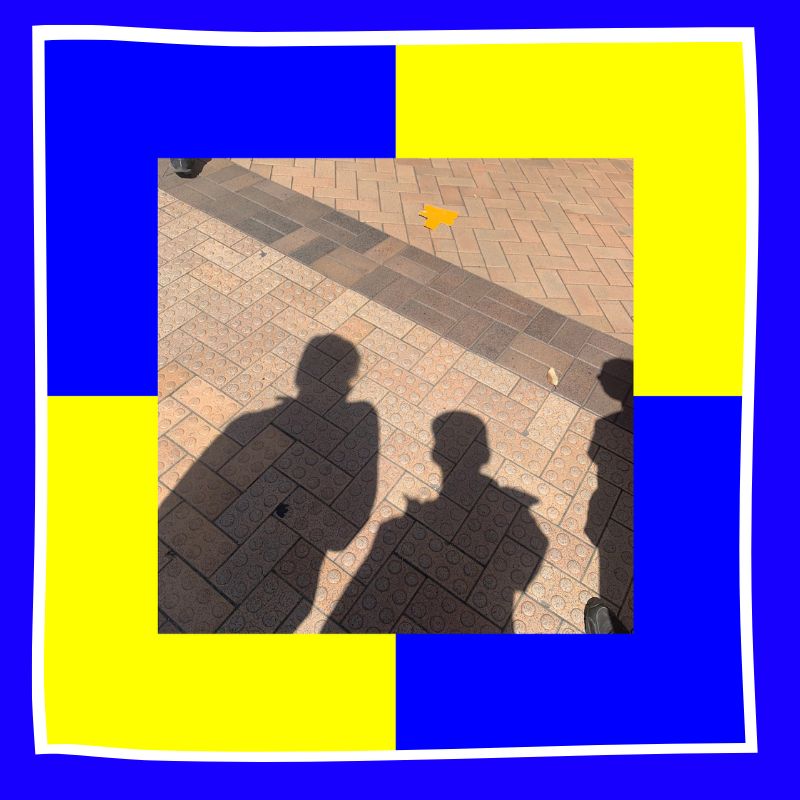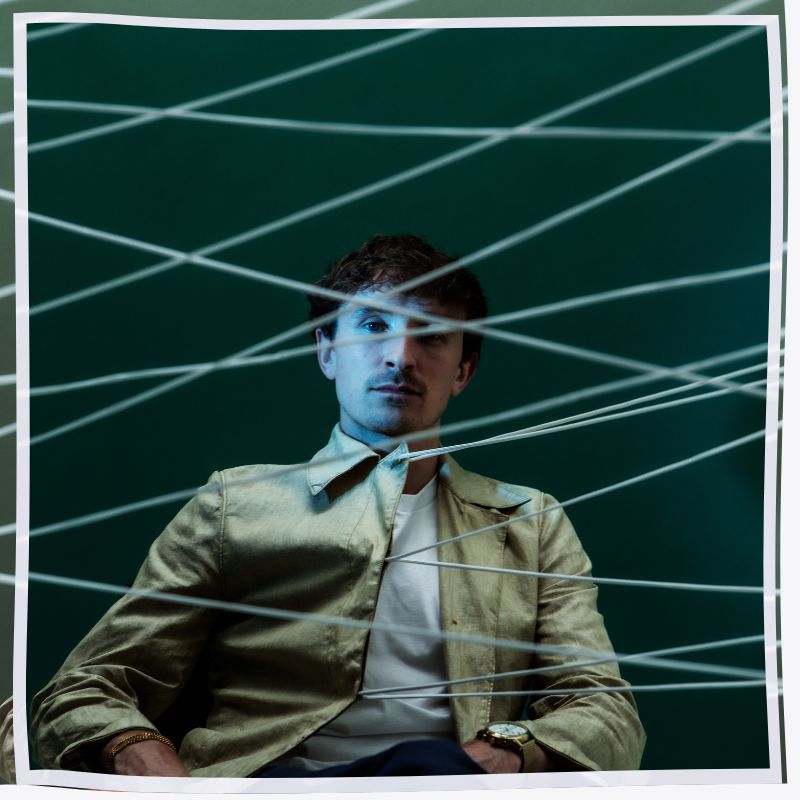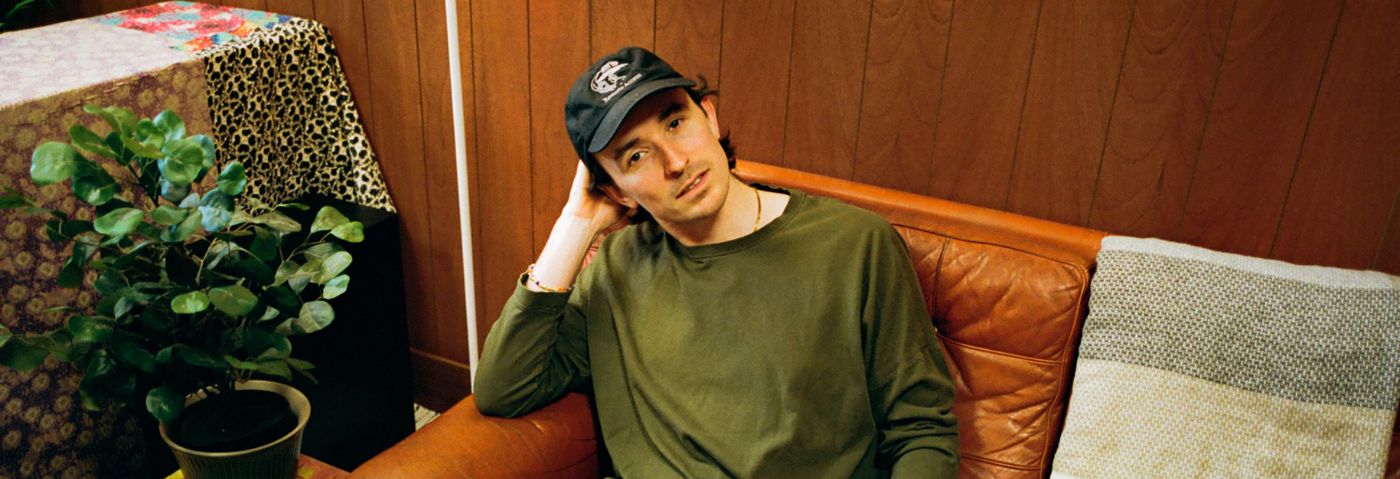One of electronic music’s most alluring artists, Ross from Friends, discusses his new single ‘The One’, the pressures of streaming numbers and his production process.
When joining my call with Ross from Friends, real name Felix Clary Weatherall, I was compelled to share a mutual interest as a springboard. I’d read he’s a fan of Madlib which, depending on your outlook, could be surprising. The LA-based producer is regarded as one of the best beatmakers of all time. The name alone is an acronym for “Mind Altering Demented Lessons In Beats”.
It’s not particularly usual that you’d discuss someone else at the start of a promo interview. Yet, Weatherall’s enthusiasm for Madlib was obvious. “It’s so hard to pick a favourite (beat). His style and ability to flip something and make it so strange is incredible. He’s straight off the bat a huge inspiration with his sampling. I feel like I’m following his sample techniques which are just so raw and so natural. The level of detail is full of character.”
It makes perfect sense as Weatherall’s music, technically speaking, is comparable. It’s intricate, detailed and deceptively complex. There’s a reason there is a gazillion How To Make Beats Like Ross From Friends tutorials online. In fact, when put to our Discord audience, the overwhelming majority requested further insight on the small lo-fi details that have been a mainstay of Weatherall’s tunes since his 2017 breakthrough single “Talk To Me You’ll Understand”. Ironically, that’s exactly what they’re trying to do.

But since then, he’s not allowed himself to be defined by his past. His production genres have blurred and he’s moved on from being just a lo-fi hero. This was evident on his last album, Tread, but his latest single ‘The One’, an upbeat garage-infused slice of goodness, is further proof of a developing artist. “I’ve always had garage in my life, whether it be my sister playing garage tunes in her room or driving around in someone’s car listening to speed garage. It’s always been there for me”. I put it to him that garage has rightly never gone away. It reminds me of the now customary (and frankly ludicrous) “Is This The Return Of Drum and Bass” articles that resurface on Twitter every summer. I can’t bring myself to put an emoji in this interview, but the eye roll one would suffice.
Looking through the catalogue, something I’d overlooked is that Weatherall doesn’t collaborate often. “I mean I do. But it might not be Ross from Friends material. I’m not against collaboration at all but I like fans knowing Ross from Friends is, you know, all just my own music”. In that pursuit, he even made a Max for Live device.
In April 2020, just as the world had stopped moving, he released the self-coded Thresho to solve his own production requirements. Thresho records up to four stereo audio inputs automatically based on a user-defined dB threshold. Once the audio reaches that threshold, Thresho begins recording; once the audio drops below the threshold, and the ‘decay’ period has been completed, it stops recording. Most producers know the struggle of getting your external sounds (or YouTube) into your DAW for sampling. This solves that and is now a constant in Weatherall’s production workflow.
He elaborates “I have Thresho recording everything in the studio which builds tons of these recordings. I’ll then fill, say a breakdown, with these recordings and gradually, like a bag of toys scattered on the floor, clean them up to fit the song till something musical comes from it.”
That bag of toys was duly tidied and the following year he unleashed a massive timestamped sample library. Speaking on Instagram at the time, ‘It turns out that there was an awful lot of material left over – more than 2,000 recordings, weighing in at 50GB, to be precise – and now you’re being invited to download it and use it in your own music.” Take it from me, kids, if you want to endure yourself to the community, give away free samples.
Tread was preceded by the single ‘The Daisy‘. I probe therefore if The One is the beginning of a release schedule culminating in an album. Expecting a more coy answer, Weatherall laughs out loud “could be, could be…it’s probably far on the horizon but I can say I’m working on one.”
It’s hard to know what to expect but The One gives us some insight. It’s garage, with a repeating vocal riff ‘you are the one for me’, there’s a brilliant epic and well pieced-together synth breakdown and there’s even (dare I say it) a Darude-sounding synth at 50 secs that comes as goes as quickly Darude did in real life. If Instagram is anything to go by, then the MC drop at 3.42 shouting “are you ready for the DJ”. has been getting people hyped on tour.

The One has racked up 485k plays on Spotify to date. It deserves more. In a now-removed Instagram post from a few years ago, Weatherall opened up about his frustrations with the music industry and I asked if numbers, data and pressure matters. “I do look at numbers all the time. I’m guilty of that. I try my best to be strong and remind myself I’m putting the music out for the music reasons and not the numbers. That’s about trying to protect my integrity. There is a balance to be had but it’s important to put the music first.”
Success can be a double-edged sword and lead to huge pressure. “Pressure can be demotivating. It’s a difficult thing to manage, the distractions and side tracks. I never forget that I’m happy spending all my time in the studio and hopefully, something productive comes from it at the end”. After all, the breakthrough single was not necessarily planned. “It kind of just happened. And I was in such a horrible situation at the time. I was just out of uni and I just didn’t know what the hell I was doing. I’d just got turned down by loads of jobs and I was like, ‘what the hell am I going to do'”? And so I just made loads of music basically. The only thing I care about is the music.”
I’m putting the music out for the music reasons and not the numbers. That’s about trying to protect my integrity.
The backdrop for our call is his South London studio finished with gorgeous wood panelling (made by himself). The furniture choices complement the walls and it resembles something more common in a 60s studio. Referring back to our Madlib interest, I was surprised to learn he’s never used an MPC. “Yeah, I just put it (samples) straight in the software. I’ve never delved into an MPC or anything like that. I’ve never even touched them.” This does raise an eyebrow considering his equipment. On a brief, slightly fuzzy show around, we’re introduced to an Oberheim OB-6 (presumably the source of the trance-esque breakdown in The One), a starry Ludwig drum kit and a “cheap Sony Tape recorder.” I can see some classy-looking guitars and I thought I spotted a Eurorack set up, but we ran out of time before getting into it.
It appears a highly comfortable working space and perhaps embodies Weaterhall’s recent fascination with “all things 60s and 70s”. To labour the point, he’s been digging away at Wave’s Abbey Road plugins. “I saw the promo video and I was like, ‘Is it really some Abbey Road sounds?'” They felt good. But I don’t know, you never get the same thing.”
That’s all subjective of course and I wanted to ask him about his development. I explain that as a producer’s listening skills develop over time, you can revisit old records and hear things you never heard before. In my own life, I’d never noticed the hard-panned drums on The White Album till relistening recently. Weatherall’s response was a funny coincidence. “Yeah, like all of the drums hard panned, you would never do that these days. But I’ve been trying it out recently with all drums to one side as a reference, like those old Beatles records. And I’m like, I don’t know how I’m going to put this out!”
Our time comes to an end. We didn’t get the chance to discuss his popular live show but notwithstanding that, Weatherall is open and engaging. His career might have started with a sprint, but he’s firmly staying on the marathon course and we can all be grateful for that.
The One is out now. Find Ross from Friends on Instagram.
